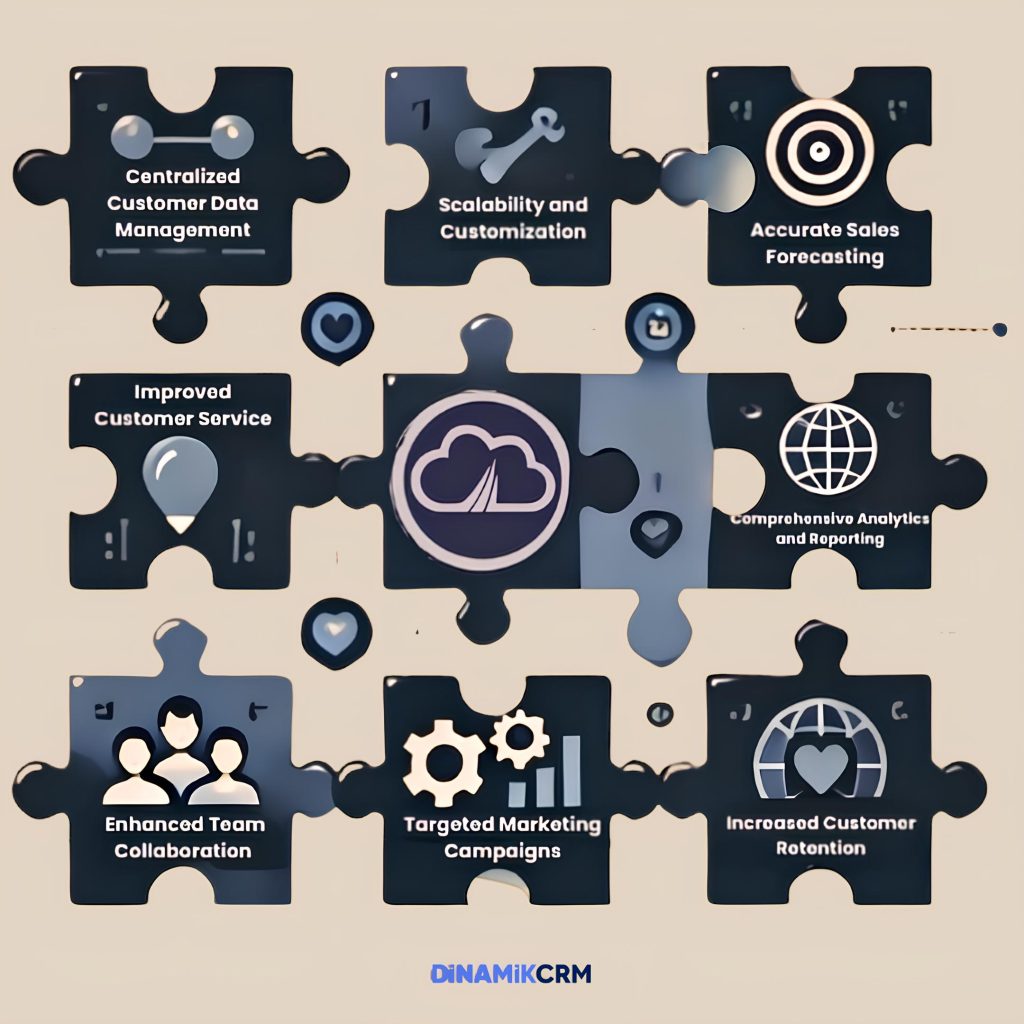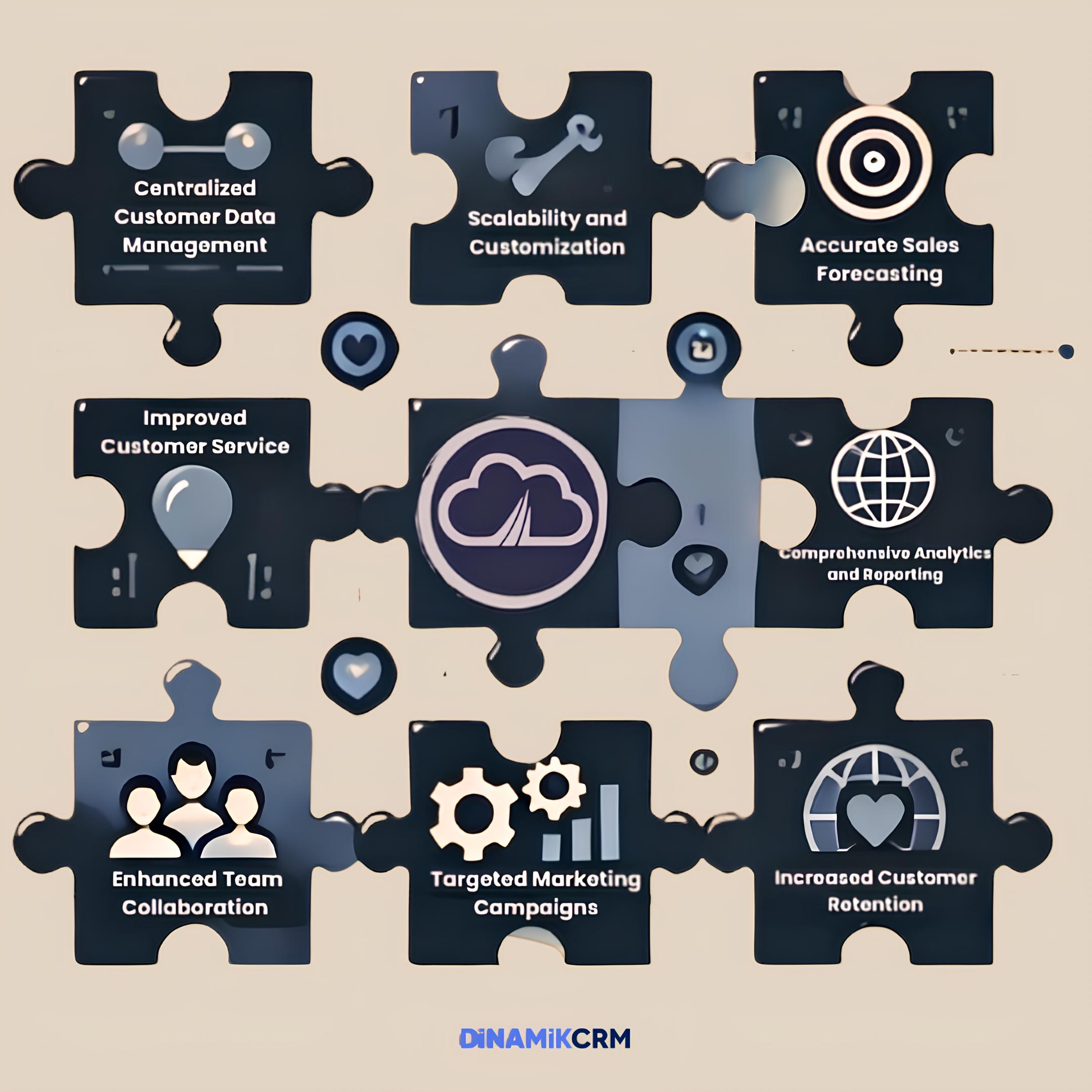- Centralized Customer Data Management
CRM software consolidates all customer information into one accessible location, making it easier to manage and utilize data effectively. This leads to a comprehensive understanding of customer behavior and preferences, enabling personalized service and more targeted marketing efforts.
- Enhanced Team Collaboration
With CRM systems, teams across departments can access and share customer information seamlessly. This collaborative approach ensures consistent communication and a unified strategy in customer interactions, which is crucial for maintaining high customer satisfaction and loyalty.
- Accurate Sales Forecasting
CRM software uses historical data and trends to forecast future sales accurately. This predictive capability helps businesses plan inventory, allocate resources efficiently, and set realistic sales goals, ultimately driving better business decisions and profitability.
- Targeted Marketing Campaigns
By leveraging the data stored in a CRM, businesses can segment their customer base and create highly targeted marketing campaigns. These campaigns are tailored to specific customer segments, improving engagement and conversion rates, and reducing marketing costs.
- Increased Customer Retention
Understanding customer needs and preferences through CRM data allows businesses to tailor their services and communication. This personalized approach enhances customer satisfaction and increases retention rates, as customers feel more valued and understood.
- Automation of Routine Tasks
CRM systems automate various routine tasks such as data entry, follow-up emails, and report generation. This automation not only saves time but also reduces the risk of human error, allowing teams to focus on more strategic activities that require human insight and creativity.
- Comprehensive Analytics and Reporting
CRM tools provide detailed analytics and reporting features, giving businesses insights into key performance indicators (KPIs) such as sales trends, customer behaviors, and campaign effectiveness. This data-driven approach enables more informed decision-making and strategy development.
- Improved Customer Service
A CRM system provides a full history of customer interactions, allowing support teams to address issues more efficiently and effectively. Quick access to relevant information results in faster problem resolution and a more satisfying customer experience.
- Mobile Accessibility
Many CRM solutions offer mobile apps that allow teams to access customer data from anywhere. This flexibility is particularly beneficial for sales representatives and support teams who need to manage customer relationships on the go.
- Scalability and Customization
CRM systems are scalable and can grow with your business. They offer customization options to tailor the software to specific business processes, ensuring that the CRM remains relevant and effective as your business evolves.
Conclusion
Incorporating a CRM system into your business operations can lead to significant improvements in efficiency, customer satisfaction, and overall business performance. By centralizing data, enhancing team collaboration, and providing valuable insights through analytics, a CRM system empowers businesses to build stronger customer relationships and achieve sustainable growth. As businesses continue to navigate an increasingly competitive landscape, the strategic implementation of a CRM system can be a game-changer, offering the tools needed to stay ahead and thrive.









